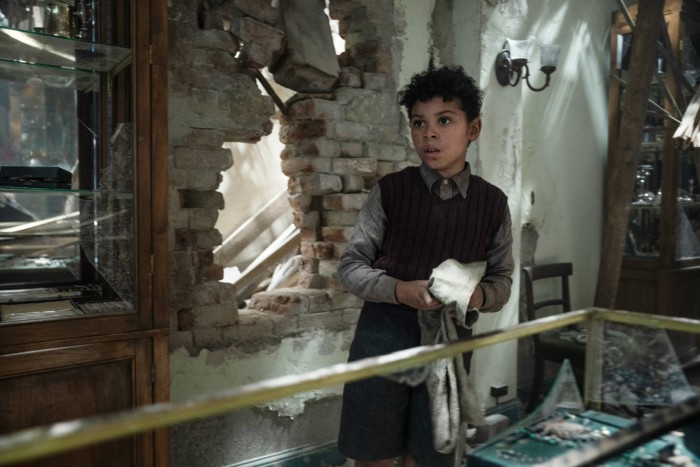
Stay informed with free updates
Simply sign up to the Film myFT Digest — delivered directly to your inbox.
How do we learn about war? If we’re very lucky, it happens through other people’s stories. If we’re luckier still, the lessons come after a conflict that we — whoever we are — won on the obvious side of right.
For generations of Britons, then, the memory of the second world war has been passed down in part by movies: a national school of wartime cinema from The Dam Busters to Darkest Hour. Many of those films have been wonderful. They have also shaped a particular understanding of the past, framed by Churchillian leadership and military daring. The result can be something like comfort food: war as teatime treat.
Blitz, the new film from Steve McQueen, is another kind of British war film. A title card puts us in September 1940, and London. German bombs terrorise the city. Hellfire reigns.
Ever since his debut, Hunger (2008), McQueen’s movies have spoken with indelible images. Here again, the result can be stark and surreal. Dawn streets are left like smashed dollhouses. A dead body sits in an armchair that no longer has walls around it. Yet others are spared. From that first nightmare aftermath, McQueen cuts to a pretty east London living room, with a cat, piano and grandfatherly figure.
Incongruously, this neatly silvered man is played by Paul Weller. A musician moonlighting as an actor, he is joined by Saoirse Ronan as his daughter, Rita. Later, she will sing (beautifully). Then there is George (Elliott Heffernan), her mixed-race son, nine years old, who sets the story rolling when, in the course of being evacuated to the country, he absconds to flee home.
All three stars bring warmth and charisma. Other characters dot the film: McQueen ensures that we see the multi-faceted London of 1940, brimming with ordinary war stories. Wisely, he also makes Rita and George our guides through his big-picture narrative.

Some of the epic quality comes from it being an expert disaster movie. (Stepney and Piccadilly stand flooded and aflame.) But the human experience is panoramic too. For Rita, there is the rhythm of a munitions factory and the sorrow of George’s fury at being sent away. And in the London to which he returns, there is context and candour, rooted in closely researched history.
The Underground gives shelter only once Londoners force their way into stations; class as well as chance dictate who lives and dies; in the eerie wreckage of a bombed nightclub, thieves steal diamonds from corpses. Battlefield tales give their characters agency. Under bombs, for civilians, war is different.
Still, at recent festival previews, you heard a certain sniffiness, as if McQueen had gone too mainstream with a film that can also feel sturdily traditional. Frankly, I despair. The movie is fearless. (Also: technical excellence is a good thing.) And the movie needs heft, to do justice to quietly heroic characters and match the weight of what it wrestles with: 80 years of “Blitz spirit” being sugared and spun into national exceptionalism.
Actually, for the patriotic, British filmmaking this bravura should be a source of pride. And never is Blitz greater than in the odyssey of George. Low to the ground and gazing up, the camera moves like a lost boy itself as it show us London’s trauma through the eyes of a child — one learning first-hand about war, the way the lucky don’t have to.
★★★★★
In cinemas from November 1 and on Apple TV+ from November 22